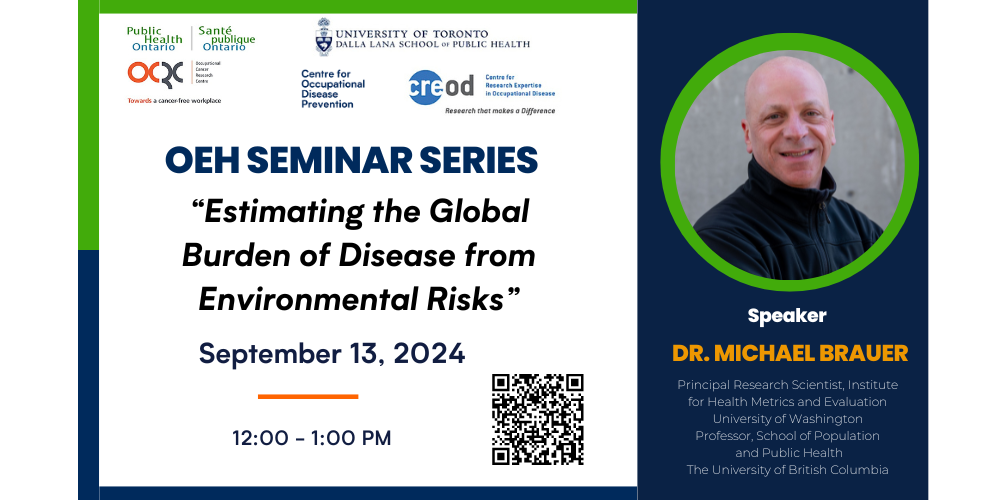- Location
- Webinars will be held via Zoom, details will be sent to all registered participants.
- Series/Type
- Alumni Event, DLSPH Event, Faculty/Staff Event, Student Event
- Format
- Online
- Dates
- September 13, 2024 from 12:00pm to 1:00pm
Links
About this event:
Title: “Estimating the global burden of disease from environmental risks”
Understanding health impacts of environmental risk factors can aid in prioritization of management policies. In the context of the Global Burden of Disease project we estimated the disease burden attributable to 12 environmental risk factors for 1990 – 2021 differentiated by age and sex for 204 countries. In 2021, ambient particulate matter (PM2.5) air pollution was the leading global environmental risk factor accounting for 4.2% of all disease burden and 4.7 million (M) deaths, followed by household air pollution (3.9%, 3.1M) and unsafe water (1.4%, 0.8M). Since 2000, exposures to household air pollution, nitrogen dioxide, unsafe water and unsafe sanitation have reduced dramatically. Reductions in exposure to cold temperatures, radon and lead have been observed but these have been insufficient to offset population growth and aging, resulting in increased attributable disease burden, while exposures to warm temperatures, ozone and ambient particulate matter pollution have increased, suggesting a need for more concerted actions.
Presenter: Dr. Michael Brauer
Michael Brauer is a Professor in the School of Population and Public Health at The University of British Columbia and a Principal Research Scientist and Affiliate Professor at the Institute for Health Metrics and Evaluation at the University of Washington, where he leads the Environmental, Occupational and Dietary Risk Factors team for the Global Burden of Disease. His research focuses on linkages between the built environment and human health, with specific interest in the global health impacts of air pollution, the relationships between multiple exposures mediated by urban form and population health, and health impacts of a changing climate. He has participated in monitoring and epidemiological studies throughout the world and served on numerous committees, including those advising the World Health Organization, the Climate and Clean Air Coalition, the World Heart Federation, the US National Academies, the Royal Society of Canada, the International Joint Commission and governments in North America and Asia. His contributions to environmental health have been recognized by a number of career achievement and publication awards.
